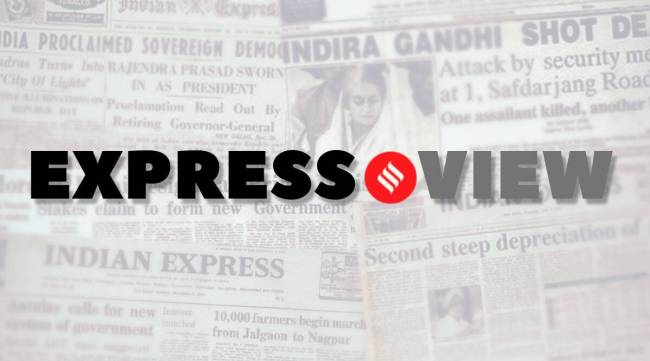Opinion Why the government must push ahead on free trade agreements
The domestic reform agenda must be aligned with ensuring that the benefits from these trade pacts can be maximised. India must lower barriers to trade, seek actively to be a part of global value chains.
 While negotiations must surely proceed with care, they must not be derailed over these issues.
While negotiations must surely proceed with care, they must not be derailed over these issues. After initially questioning the benefits accruing from free trade agreements India had signed over the years, the Narendra Modi government appears to have rethought its position on trade pacts. Over the course of the last year or so, the government has been actively pursuing pacts with a wide range of countries. Trade pacts have been signed with Australia and the UAE, while negotiations are ongoing with the UK and the European Union, among others. But as these talks enter a critical phase, non-tariff issues ranging from carbon emission norms and climate action to labour and gender balance standards are increasingly coming into focus. Indian negotiators are concerned that their inclusion could provide partner countries with instruments to impose non-tariff protectionist measures, not allowing India to fully take advantage of the trade pacts.
Take, for instance, the issue of carbon emissions, which is gaining traction. Recently, the European Union reached an agreement on a carbon border adjustment mechanism which is meant to target carbon intensive products such as iron and steel, cement, aluminium and fertilisers. This is applicable from October 2023. Under the framework, levies would be imposed on imported goods on the basis of the emissions during their production process. As per the European Commission, the adjustment mechanism will “equalise the price of carbon between domestic products and imports”, and thus ensure that the EU’s climate objectives “are not undermined by production relocating to countries with less ambitious policies.” This will impose costs on Indian exporters, act as a barrier. On similar lines, manufacturers of steel in India will be at a disadvantage when compared to those in the US where the process results in lower carbon emissions.
As reported in this paper, policy makers in Delhi have raised these concerns, arguing for the need to examine these issues “cautiously”. While negotiations must surely proceed with care, they must not be derailed over these issues. The government must push ahead with these trade agreements. In fact, the domestic reform agenda must be aligned with ensuring that the benefits from these trade pacts can be maximised. A recent report that the government plans to raise import duties on “non-essential items” runs counter to its embrace of trade agreements. Moves such as these will only expose the government to the charge of being protectionist. The first two decades after 1991-92 saw a steep decline in tariff rates. The trend, however, has been reversed under the Modi government with the average applied import tariff actually rising. At a time when firms are looking to diversify away from China, pursuing a China plus one strategy, India must lower barriers to trade, seek actively to be a part of global value chains.



